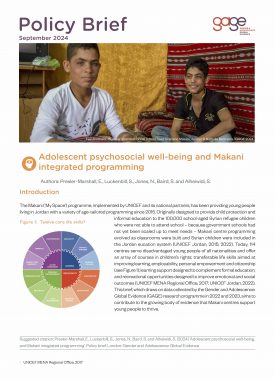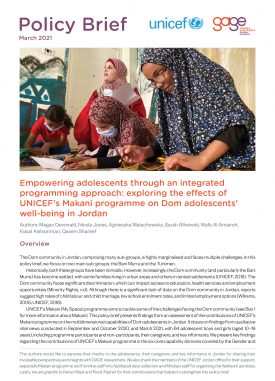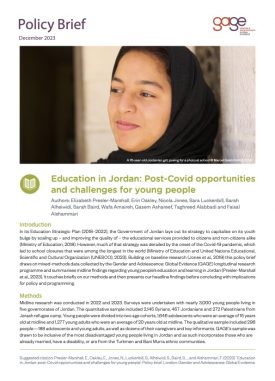Implemented by the United Nations Children’s Fund (UNICEF) and its national partners, Makani (‘My Space’) Programme has been providing young people living in Jordan with a variety of age-tailored programming since 2015. Originally designed to provide child protection and informal education to the 100,000 school-aged Syrian refugee children who were not able to attend school – because government schools had not yet been scaled up to meet needs – Makani centre programming evolved as Syrian children were gradually included in the Jordan education system, including through a double-shift system (UNICEF Jordan, 2015; 2022). Today, 114 centres serve disadvantaged young people of all nationalities and offer an array of integrated programming encompassing children’s rights, life skills, job skills and learning support designed to complement formal education and recreational opportunities (UNICEF Jordan, 2022). This brief, which draws on data collected by the Gender and Adolescence: Global Evidence (GAGE) research programme in late 2022 and early 2023, aims to contribute to the growing body of evidence that Makani centres support young people to aspire and learn.
Suggested citation:
Presler-Marshall, E., Luckenbill, S., Jones, N., Baird, S. and Alheiwidi, S. (2024) ‘Adolescent education and Makani integrated programming’. Policy brief. London: Gender and Adolescence: Global Evidence (https://www.gage.odi.org/publication/adolescent-education-and-learning-and-makani-integrated-programming/)


